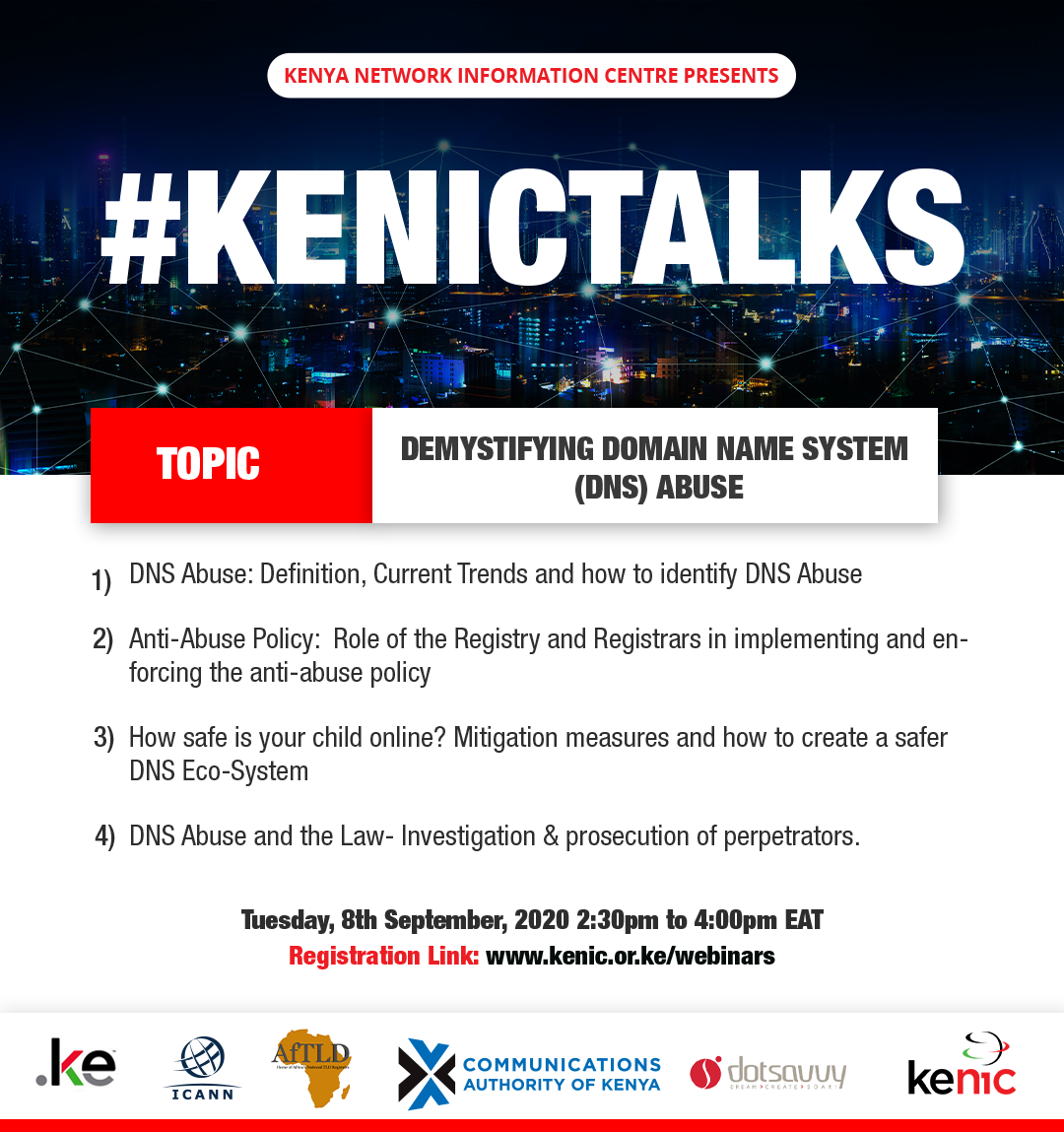There is a misconception that a firewall can stop DNS-based attacks. This is not true because DNS traffic is not inspected and controlled by most firewalls and data exfiltration via DNS is happening more often than you think. DNS Abuse includes activities such as Distributed Denial of Service Attacks (DDoS), Spam, Phishing, Malware, Botnets and the distribution of illegal materials and activities threaten the security, stability and resiliency of the DNS infrastructures. Malicious activity on the Internet routinely threatens and affects domain name registrants and end-users by leveraging vulnerabilities and features of all aspects of the Internet and DNS ecosystems.
On 8th September, #KeNICTalks will be discussing the role of the Registry and the Registrars in implementing and enforcing the DNS Anti-Abuse. We will address privacy concerns as well as security, tiered access to personal data and other security vulnerabilities featured under DNS Abuse and the law.
Lilian Kariuki, Executive Director, Watoto Watch Network will be answering questions on how safe your child is online. In this new era of digital learning, we often forget to policy our children’s online activity. She will discuss mitigation measures and how to create a safer DNS Eco-System in perspective of online child protection.
TOPICS OF DISCUSSION
- DNS Abuse: Definition, Current Trends and how to identify DNS Abuse
- Anti-Abuse Policy: Role of the Registry and Registrars in implementing and enforcing the anti-abuse policy
- How safe is your child online? Mitigation measures and how to create a safer DNS Eco-System
- DNS Abuse and the Law- Investigation & prosecution of perpetrators.

